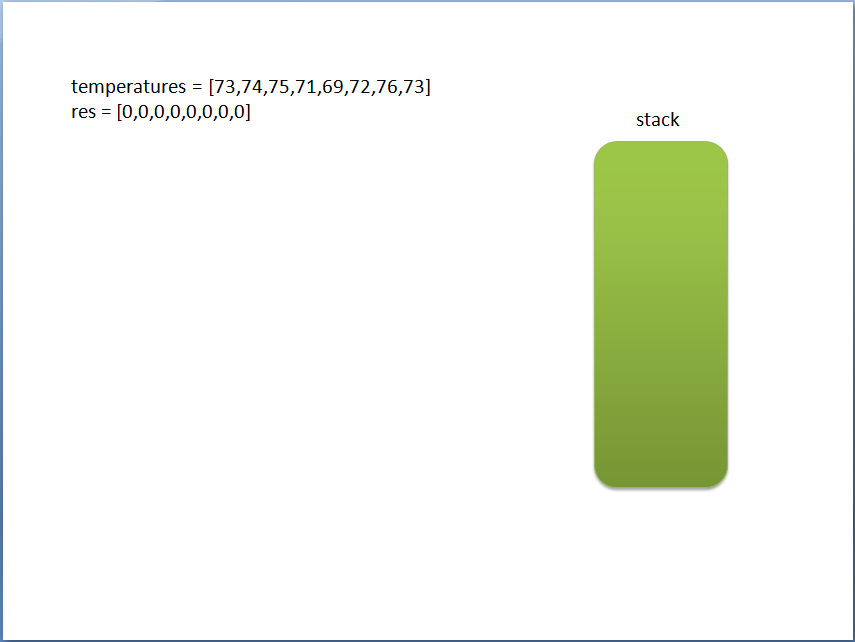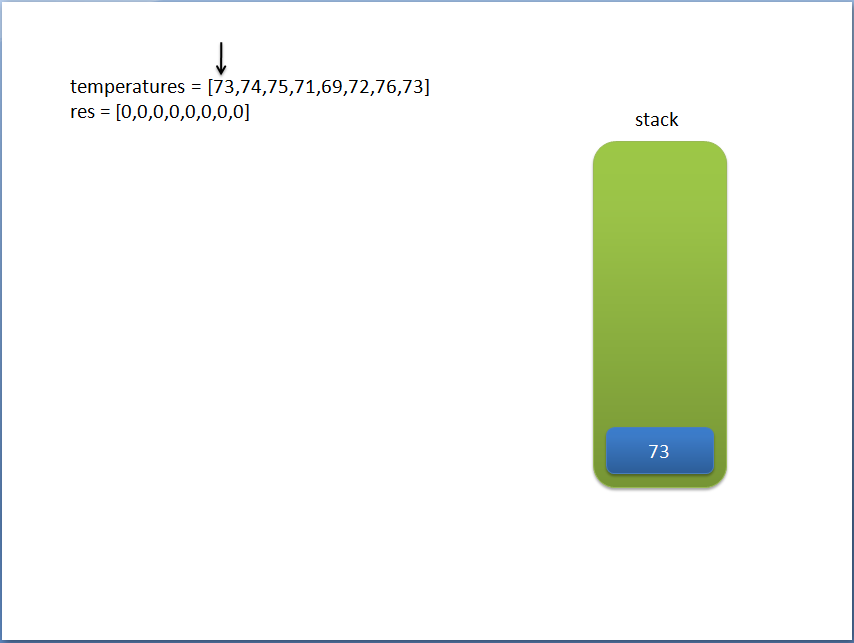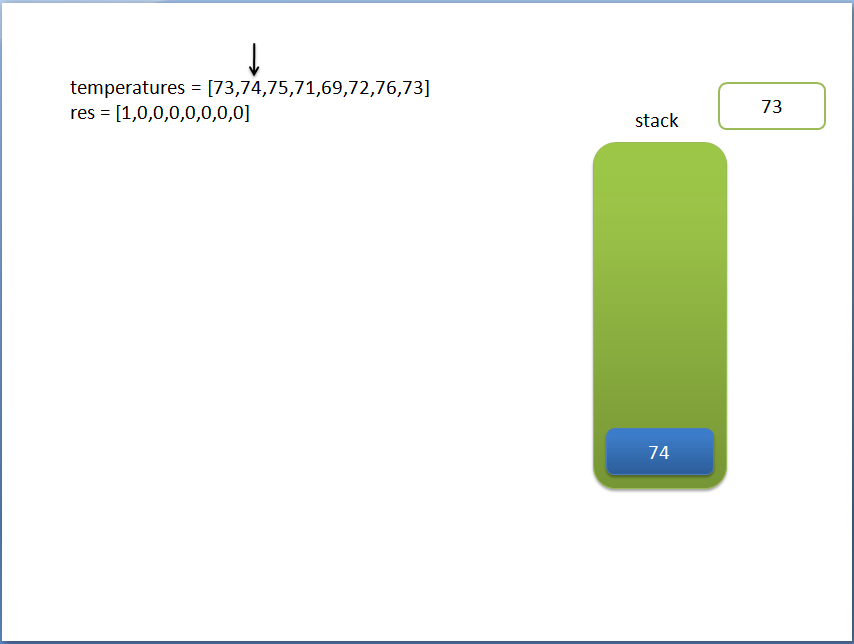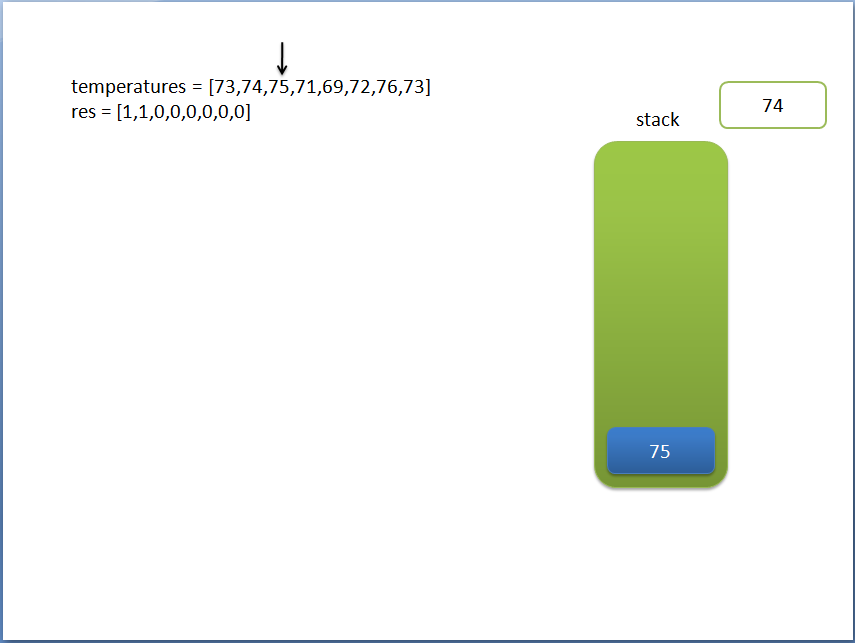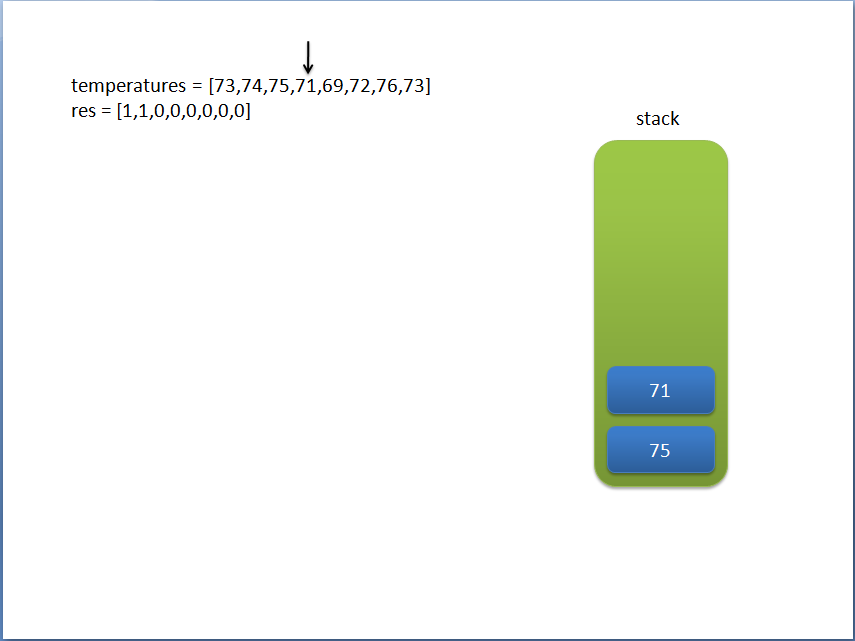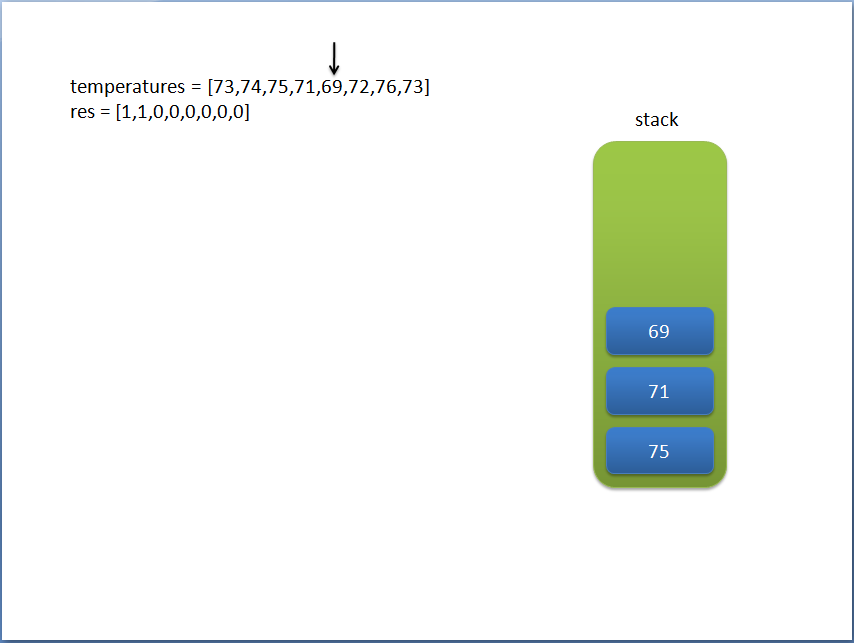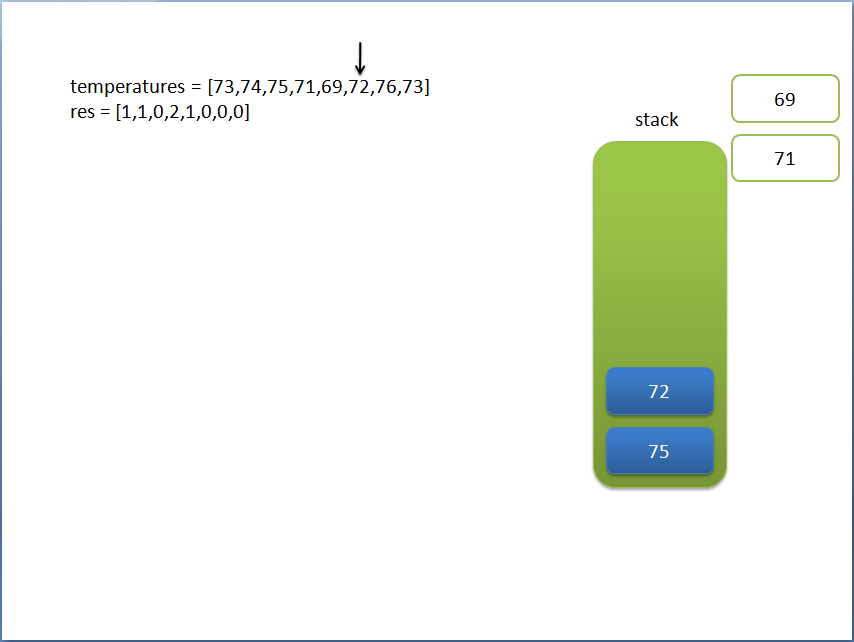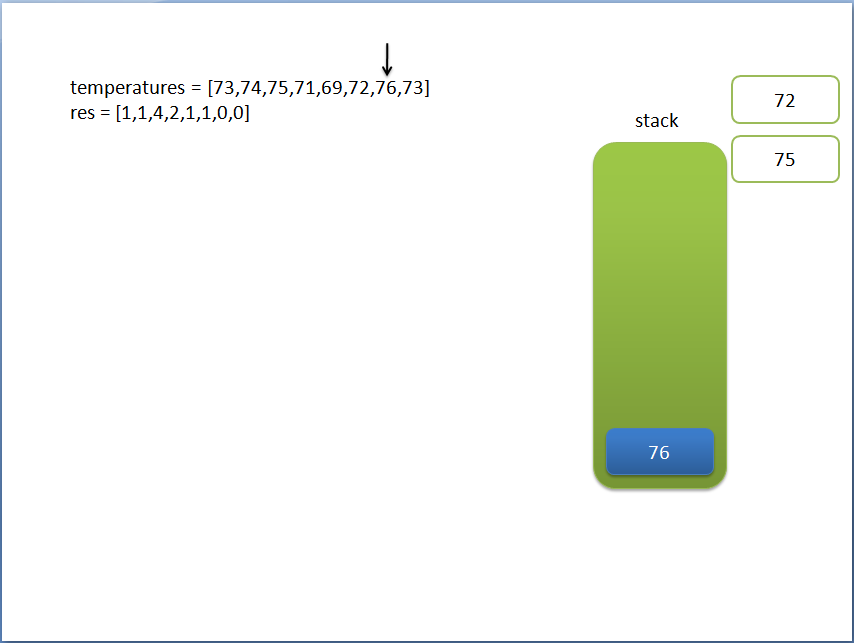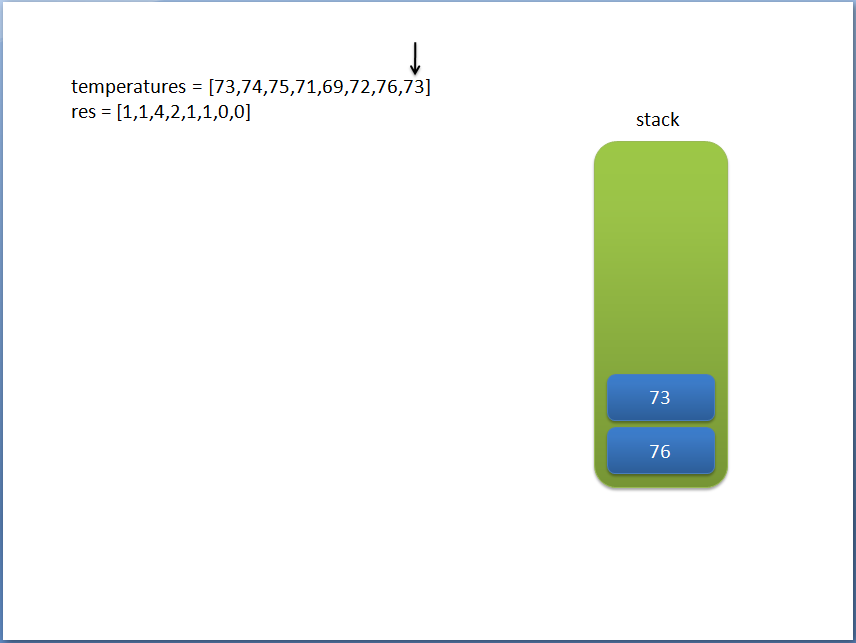链接:https://leetcode-cn.com/problems/daily-temperatures/
解题思路:栈
初始化:
- 初始化一个单调递减栈
Stack<Integer> stack = new Stack<>()用来存放温度数组的下标 - 声明返回数组
res
算法流程:
- 从头遍历温度数组
temperatures- 如果当前栈为空,则将该位置下标
i添加到栈中 - 如果当前栈不为空
- 当遍历到的温度
temperatures[i]大于栈顶所表示的温度temperatures[stack.peek()]时,我们就执行循环出栈的操作,直至当前栈满足一个单调递减栈;每次的出栈操作,我们都可以确定返回数组res的一个值 - 向栈中添加元素
i
- 当遍历到的温度
- 如果当前栈为空,则将该位置下标
- 最后返回结果集
res
流程示意图:
代码
class Solution {public int[] dailyTemperatures(int[] temperatures) {int[] res = new int[temperatures.length];Stack<Integer> stack = new Stack<>();for(int i = 0; i < temperatures.length; i++){if(stack.isEmpty()){stack.push(i);}else {while(!stack.isEmpty() && temperatures[stack.peek()] < temperatures[i]){int j = stack.pop();res[j] = i - j;}stack.push(i);}}return res;}}
复杂度分析
- 时间复杂度
从头至尾遍历了一次数组,时间复杂度为:
- 空间复杂度
我们使用了栈这种辅助数据结构,额外空间复杂度为:
